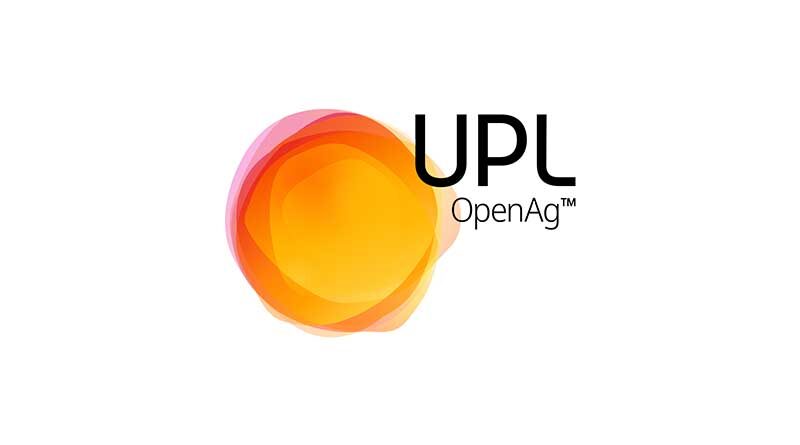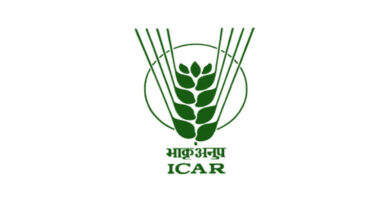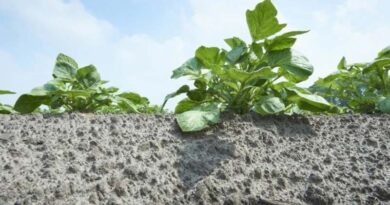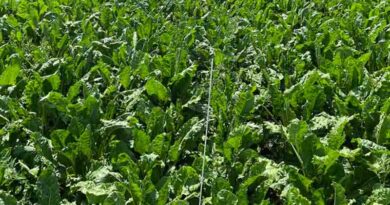UPL provides 50 MT of Zeba to Bidal village in Maharashtra for Soil Application
29 April 2022, New Delhi: UPL Ltd. has provided 50 MT of Zeba to Bidal Village for Soil Application in an attempt to recognise the revolution of agriculture implemented by the Villagers. The company also provided the product to 10 neighboring villages, in an attempt to initiate this drive there as well. The use of Zeba will ensure that water given to the trees will be utilised fully and number of rounds of watering will be reduced ensuring Zero mortality of planted trees.
Bidal is mid-sized village with a population of 6500, located in Maan Tahsil of the Satara District in Maharashtra. This Village holds a record of holding no election since the last 55 years, as the inhabitants select their leadership at Gram panchayats or Societies, where most candidates unopposed. The village is also known to be a leader in technology adoption and new age education. Each of the 42 classrooms of the local school have been equipped with an LED TV for audio visual learning. It is the only Gram panchayat in the Satara District which makes all purchases through online tenders.
Besides this, Bidal is also representative of those villages in Western Maharashtra, which come under the rain-shadow area, resulting in unavailability of water for drinking and other daily needs. In the recent years, it has been observed that it is nearly impossible to get water for agriculture after November.
Also Read: Less than 3 percent pesticides in Indian market misbranded FY 2021-22
Before the drought of 1972, this village was famous for growing cotton seeds, and it held the patent for the Varalakshmi Seed Variety of Summer Cotton. The region also cultivated grapes and many other crops, but post the 1972 drought, a major part of Bidal’s population shifted from agriculture to other professions like, education, military, engineering, Government Services through MPSC & UPSC. The traditional identity of the village being a producer of Cotton Seed thus began to decline rapidly.
The year 2017 brought about a change in Bidal, and all the villagers of Bidal, right from school going children to retired seniors, gathered and decided to challenge the status quo and go back to their roots which had been lost since 1972. Every villager contributed their time, money and energy and worked towards water conservation, in an effort initiated by the Paani Foundation to restore the agricultural heritage of the villagers.
Over 2000 villagers worked from dawn to dusk for a month and a half planting trees. They were planted on the nearby hills, alongside roads, and every possible place they could. A minimum of 5 fruit crops surrounded each house of the 1648 families that inhabited the village. They were planted along contour on hills with CCT, Loose boulders, Deep CCT, Counter bunding, Gabin Bandhare for Soil & Water Conservation, building reservoirs and many other structures to promote the movement.
In 2022, Bidal is the leading Village in Water conservation, and has planted and sustained 2 Lakh trees in the surrounding areas. The farmers are growing key cash crop vegetables like Onions and Sugarcane, as well as 75 Acres of Pomegranate, 60 Acres of Mango, and 25 Acres of Grapes.
However, every year the villagers face a recurring challenge – To sustain the old trees and newly planted trees during the Summer season, especially from February to June, due to the challenge of providing water at regular intervals to these 2 lakh trees which are growing across the village.
Abhijeet Jagdale, a Crop Manager at UPL Ltd., born in Bidal, raised this concern to UPL Ltd. who agreed to provide Zeba, a super absorbent to aid with the problem.
UPL Ltd. developed Zeba, a naturally derived, starch-based, completely bio degradable, super absorbent to address the concern of water shortage in agriculture. Intended for in-furrow application, Zeba increases the water holding capacity of the soil, improves the nutrient use efficiency in the crop’s root zone and has a positive effect on the soil microbiome, thereby maintaining soil health. It can absorb 400 times its own weight in water and release it as per the crops’ need. It is effective for six months in the soil and decomposes naturally and harmlessly into the soil. These properties mean crops consume less water, reducing agriculture’s water footprint, which further leads to lesser electricity being used for operations like irrigation. The absorption of nutrient molecules for use later by the plant also means less fertilizer use per acre due to lesser leaching/wastage.
The ceremony of handing over of the 50 MT of Zeba was done in Bidal on the 28th February in the presence of Savesh Kumar (Head – Field Marketing), Harshal Sonawane – Lead Crop Establishment, India, Abhijeet Jagdale (Crop Manager & being native of Bidal) and members of the local team. Bidal representatives at the event included, Sarpanch, Mrs. Gaurishital Bapusaheb Jagdale, Vice Sarpanch Savita Sharad Kulal, Mr. Bapusaheb Jagdale, Sharad Kulal, Hanumant Phadtare, Ashok Ingavale leading all key changes in.















